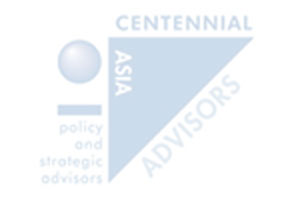Asian Insights
A summary of “Asian Insights” weekly update is published here. The full version is available through paid subscription. Please click here to register your interest. Our executive will get in touch with you.

Highlights from the CAA Weekly Table:
Asian political risks: No good news
- The collapse of the Afghan government hurts the region as a whole. American credibility and its security guarantees are under a cloud, potentially emboldening its rivals to undertake provocations. India is also a big loser. China, however, could emerge in a much better position – as both its major rivals, the US and India are on the back foot.
- Malaysia’s political crisis deepened with Prime Minister Muhyiddin’s resignation. He will continue as caretaker prime minister while the fragmented political groups struggle to agree on a new prime minister and ruling coalition.
- Two worrying trends emerge in Thailand: As protests spread, violence has increased. Moreover, without coherent leadership among the protestors, the likelihood grows that some disaffected groups might provoke the authorities into a harsher crackdown.
Asian economic prospects:
The resurgence in COVID-19 infections is hurting growth across the region but some countries are likely to rebound more strongly than others as the year progresses.
- China’s economy slowed across the board. But with activity likely to pick up on a rebound in investment, it is unlikely that policy makers will offer much stimulus.
- Taiwan and Singapore’s robust performance can be sustained. As vaccination rates improve, Malaysia should put its malaise behind it, especially as its export sector is doing well.
- India’s economy is finding its footing but Indonesia and the Philippines are still hurting.
Covid-19: watch four areas of scarring that will hurt the regional economies
- The crisis will leave public debt levels much higher, a damaged credit culture, deficiencies in the labour market and capital stock eroded to some extent.
- Taiwan, Korea, Vietnam, Thailand, China and Singapore come out looking stronger than the rest of the pack (Table 1). These countries are marked by relatively strong state capacity.
- Indonesia, India, the Philippines and Malaysia, however, are in a weaker position.
Table 1: Z-scores for metrics on economic scarring in East Asia
|
NPL ratio (%) |
Debt ratio (%) |
Labour scarring (% deviation) |
Capital scarring (% deviation) |
Z-scores, the higher the better |
|
|
Taiwan |
0.2 |
33.8 |
-3.2 |
9.4 |
3.3 |
|
Korea |
0.5 |
43.8 |
-3.8 |
4.1 |
2.0 |
|
Vietnam |
2.1 |
55.3 |
0.6 |
4.1 |
1.6 |
|
Singapore |
2.3 |
– |
-12.3 |
-1.7 |
0.8 |
|
Thailand |
3.1 |
52.1 |
-0.2 |
1.8 |
0.8 |
|
Indonesia |
3.3 |
39.4 |
-2.2 |
-2.2 |
0.5 |
|
China |
1.9 |
73.7 |
-5.1 |
– |
-0.9 |
|
India |
7.5 |
77.6 |
2.8 |
8.7 |
-1.2 |
|
Philippines |
4.5 |
57.0 |
-5.8 |
-18.3 |
-3.4 |
|
Malaysia |
1.6 |
62.2 |
-12.4 |
-16.9 |
-3.4 |

Highlights from the CAA Weekly Table:
Regional dynamics could yield more trade synergies as CPTPP flourishes
- Despite growing protectionism and US-China frictions undermining multilateralism, some international cooperation is still progressing, and will benefit Asian economies. China and the UK are in varying stages of negotiations to join the Comprehensive & Progressive Trans-Pacific Partnership. This could spur other countries such as South Korea and Thailand to decide soon on whether to formally apply to join the trade pact.
Asian economies: Northeast Asians doing better than others
- China’s economy still vibrant: Manufacturing slowed due to supply-side disruptions but services activity continued to be vigorous. While input prices are rising, there has been little pass-through to overall consumer inflation. Expect the Chinese Yuan to strengthen further.
- South Korean economic activity is firming, spurred by exports as well as domestic demand. The central bank is hinting at a rate hike but fiscal spending is likely to be stepped up.
- In India, the economy has slowed because of the previous surge in infections but with the pandemic now easing, activity is regaining momentum.
- Indonesia is in better shape, with the PMI at a record level. Contrary to some media reports, the expected surge in infections is not materializing.
Asian political risks:
- Jockeying for position for the 2024 presidential elections has started: That will help President Jokowi delay the point at which he becomes a lame duck, allowing him to push through reforms – where he has the will to pursue them.
- In the Philippines, next year’s presidential elections are triggering increased bickering in the political class: As President Duterte’s term approaches its end, political allies are going their separate ways, some to position themselves for a presidential run. An example is Manny Pacquiao, once a loyal backer of the President, who is now discreetly critiquing some of the administration’s actions.
Global capital spending renaissance to boost Asian exports – 7 reasons
- There is huge pent-up demand for capital spending which we believe will be released soon.
- Regime shifts in fiscal, monetary and industrial policies will reduce risks for businesses while enhancing potential returns from capacity expansions.
- The pandemic has forced many changes in working and business practices which require additional investment.
- There are multiple technological revolutions that will require huge new investments. The impact of advances in computing power married to enhanced communications is already well established. But there are also game-changing innovations elsewhere – renewable energy, bio-medical advances, new materials and advanced manufacturing processes.
- De-carbonising the world economy will also require substantial new spending.
- We also are expecting a new wave of infrastructure spending.
